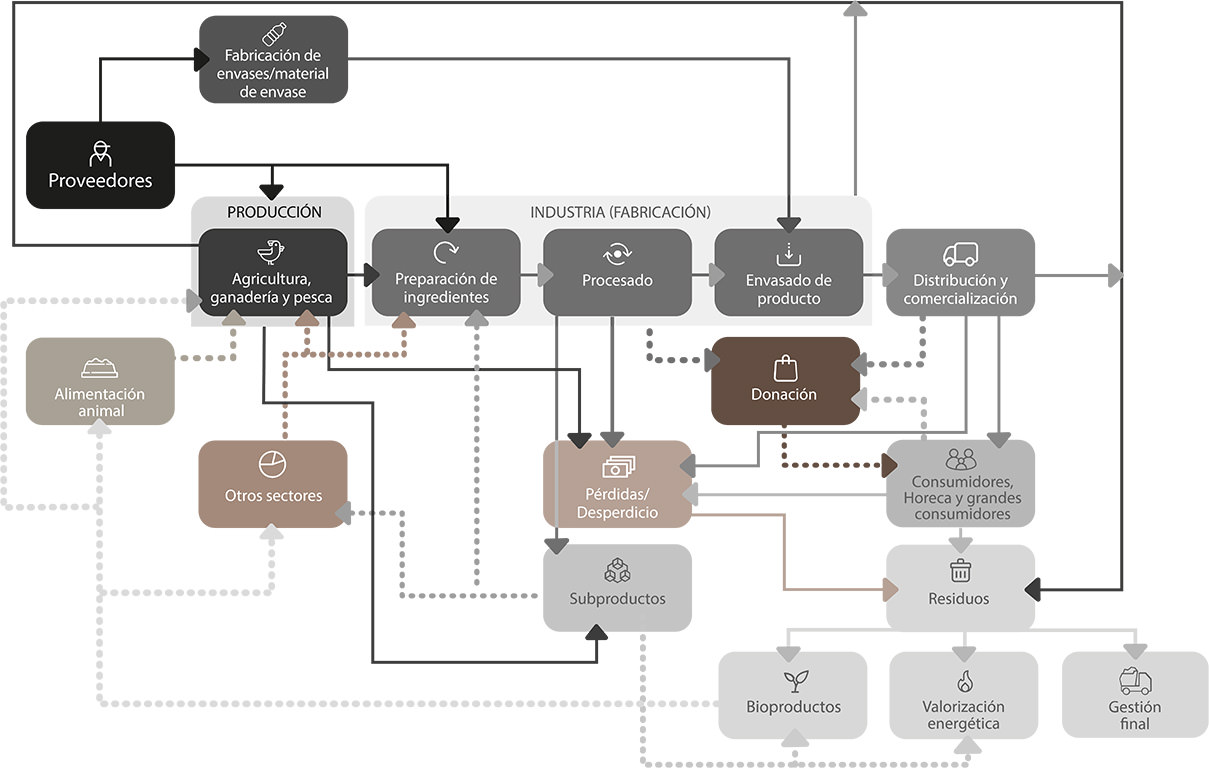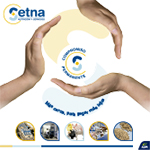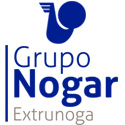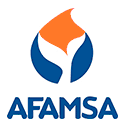Sustainability and circular economy
CESFAC is involved in initiatives to promote
a competitive and sustainable livestock sector
a competitive and sustainable livestock sector
The sustainability challenge
Sustainability is a challenge and responsibility at the current time. The agri-food sector is an important element of the Spanish economy and key element for the ecological transition and sustainability.
The animal feed sector has valorized the products from the industries providing them a new use. In this sense, CESFAC is fully involved and participates in several initiatives in order to promote the sustainability of resource efficient livestock production systems.
The animal feed sector has valorized the products from the industries providing them a new use. In this sense, CESFAC is fully involved and participates in several initiatives in order to promote the sustainability of resource efficient livestock production systems.
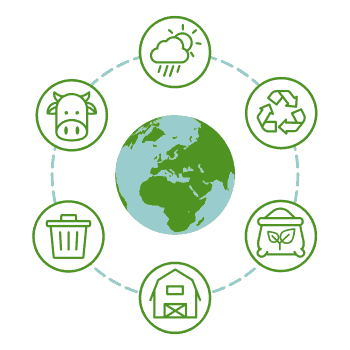
CESFAC SUSTAINABILITY AGENDA 2030
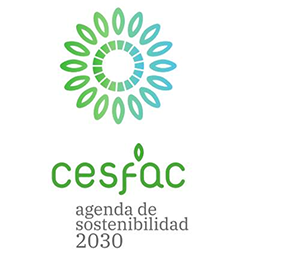
Sustainable soy for a responsible supply of compound feed
Animal feed manufacturers, joining forces with our partners in the food chain, have the opportunity to enhance their collaboration towards obtaining ambitious results: a production and transformation more sustainable, efficient, resilient and aware of the environmental and social problems.
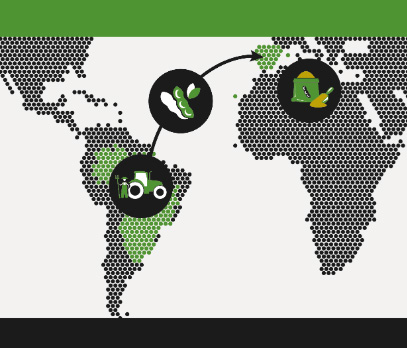
As a sign of commitment, strategies and actions have been carried out framed in the CESFAC Sustainability Agenda 2030. For its development, several tools have been designed with the administration and in collaboration from other stakeholders, such as the National Roundtable of Sustainable Feed Materials chaired by the Ministry of Agriculture, Fisheries and Food.
As part of our Sustainability Agenda 2030, CESFAC has advocated for feed materials responsible sourcing and committed to the fight against deforestation. As a commitment of the sector, CESFAC with the support of IDH (Sustainable Trade Initiative), have carried out new project in 2019 that responded to the industry's desire to anticipate the future of sustainable soy and the fight against deforestation.
As part of our Sustainability Agenda 2030, CESFAC has advocated for feed materials responsible sourcing and committed to the fight against deforestation. As a commitment of the sector, CESFAC with the support of IDH (Sustainable Trade Initiative), have carried out new project in 2019 that responded to the industry's desire to anticipate the future of sustainable soy and the fight against deforestation.
The objective of the study has been to obtain a real and contrasted photo of soy imports from all origins to Spain, to know their environmental impacts and to identify the necessary sustainability initiatives in the fight against deforestation. Likewise, the emerging information from the study has been contrasted with the feed manufacturers and other operators in the chain, to find out their perspective and vision of sustainable soy and to be able to obtain a more complete picture of the sector.
The results of the analysis of soy flows reflect that 100% of soy imported from the United States and a high percentage imported from Brazil (71%) and Argentina (91%) have been produced in areas associated with low deforestation risk, which reflects the commitment to decoupling production in risky areas.
The results of the study are the starting point with the objective of achieving that by 2030, 100% of the soy used in the manufacture of feed in Spain has been produced in a sustainable way and committed to the fight against deforestation.
Although, sustainability is a shared responsibility and the animal feed sector cooperates, participates and shares this challenge with all the operators of the soy chain from the origin. We can only achieve the defined objectives if all stakeholders engage with them.
The results of the analysis of soy flows reflect that 100% of soy imported from the United States and a high percentage imported from Brazil (71%) and Argentina (91%) have been produced in areas associated with low deforestation risk, which reflects the commitment to decoupling production in risky areas.
The results of the study are the starting point with the objective of achieving that by 2030, 100% of the soy used in the manufacture of feed in Spain has been produced in a sustainable way and committed to the fight against deforestation.
Although, sustainability is a shared responsibility and the animal feed sector cooperates, participates and shares this challenge with all the operators of the soy chain from the origin. We can only achieve the defined objectives if all stakeholders engage with them.
In addition, the CESFAC Sustainability Agenda 2030 includes additional actions to contribute to a more sustainable feed production such as promote the Spanish Protein Plan or contribute to the circular economy valuing co-products.
Moreover, CESFAC is developing a communication strategy as part of the CESFAC Sustainability Agenda 2030. CESFAC is a founding member of a Spanish platform initiative to counter misinformation about the livestock sector, Somos Ganadería, which brings together a group of associations linked to animal production in Spain and similar to EuropeanLivestockVoice. Recently, the #REALIDADGANADERA campaign was launched through the following webpage https://realidadganadera.es/
Moreover, CESFAC is developing a communication strategy as part of the CESFAC Sustainability Agenda 2030. CESFAC is a founding member of a Spanish platform initiative to counter misinformation about the livestock sector, Somos Ganadería, which brings together a group of associations linked to animal production in Spain and similar to EuropeanLivestockVoice. Recently, the #REALIDADGANADERA campaign was launched through the following webpage https://realidadganadera.es/

Conama
There is a new edition of the National Environmental Congress every two years. The agri-food sector is a key element in the Spanish economy for the ecological transition and towards sustainability. In this sense, CESFAC collaborates in several working groups of experts that coordinate CONAMA.
In the 14th edition of the National Congress of the Environment, CONAMA 2018, the circular economy working group designed an interactive map of the circular economy, showing the interrelations among different agents involved in the food chain and the relevance of our sector as one of the main actors.
Circular Economy Pact
In line with this European Union Action Plan for the Circular Economy, the Spanish Government has prepared the circular economy strategy in order to promote the transition towards a circular economy model in our country. This strategy has a long-term vision, Spain Circular 2030.
Because of the relevance of the strategy, CESFAC joined the initiative as a commitment of our sector to the circular economy model.
To promote the transition towards a circular economy model in our country, we involve the main economic and social agents.
FEFAC Soy Sourcing Guidelines
CESFAC is committed to improve the sustainability and promotes the supply of responsible soy according to the FEFAC Soy Sourcing Guidelines.The FEFAC Soy Sourcing Guidelines are developed to contribute to a mainstream transition towards responsible soy. The goal of the Guidelines and the accompanying benchmark system is to provide transparency to market operators interested in purchasing responsible soy and to give suppliers and farmer organizations an incentive to develop their own approach for responsible soy cultivation together with their farm base.




